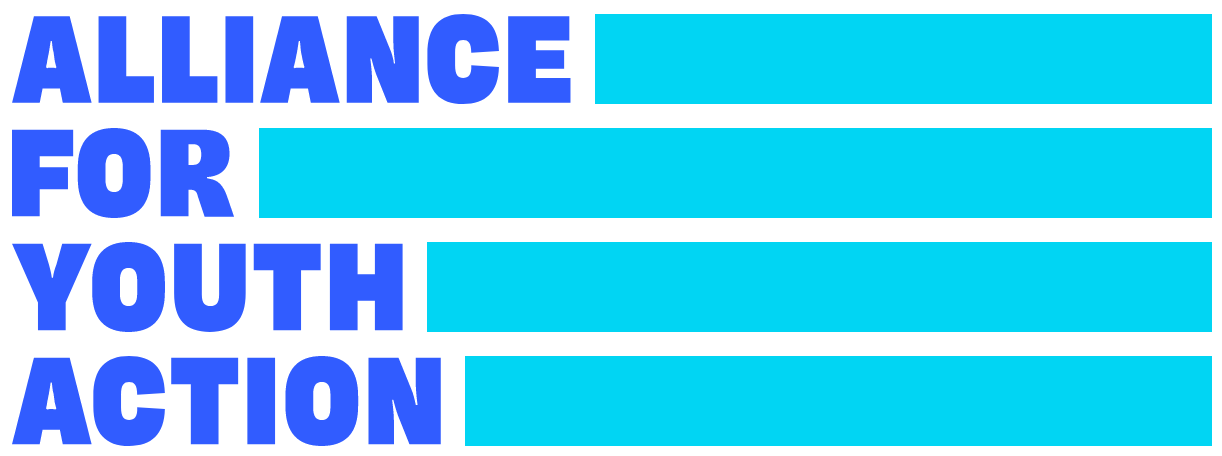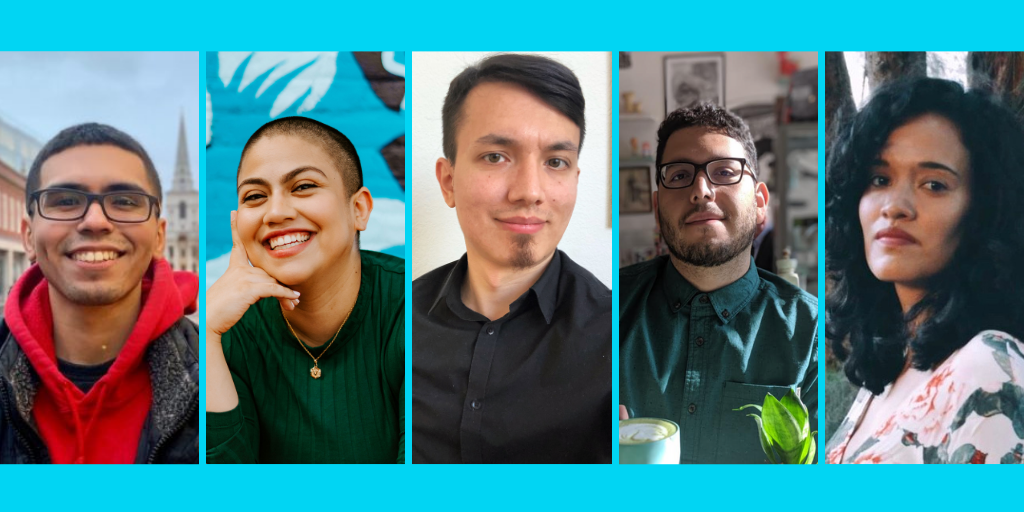Latinx Heritage Month (September 15 – October 15), celebrates and uplifts the countless contributions of more than 60 million Latinx Americans to our culture and society. During this month, we specifically uplift the work and achievements of young Latinx organizers and activists across the country fighting for a better future. In the Alliance for Youth Action, there are countless Latinx organizers working in their community, getting out the vote, and pushing for progressive policy.
Here are just a few of those organizers and their stories.
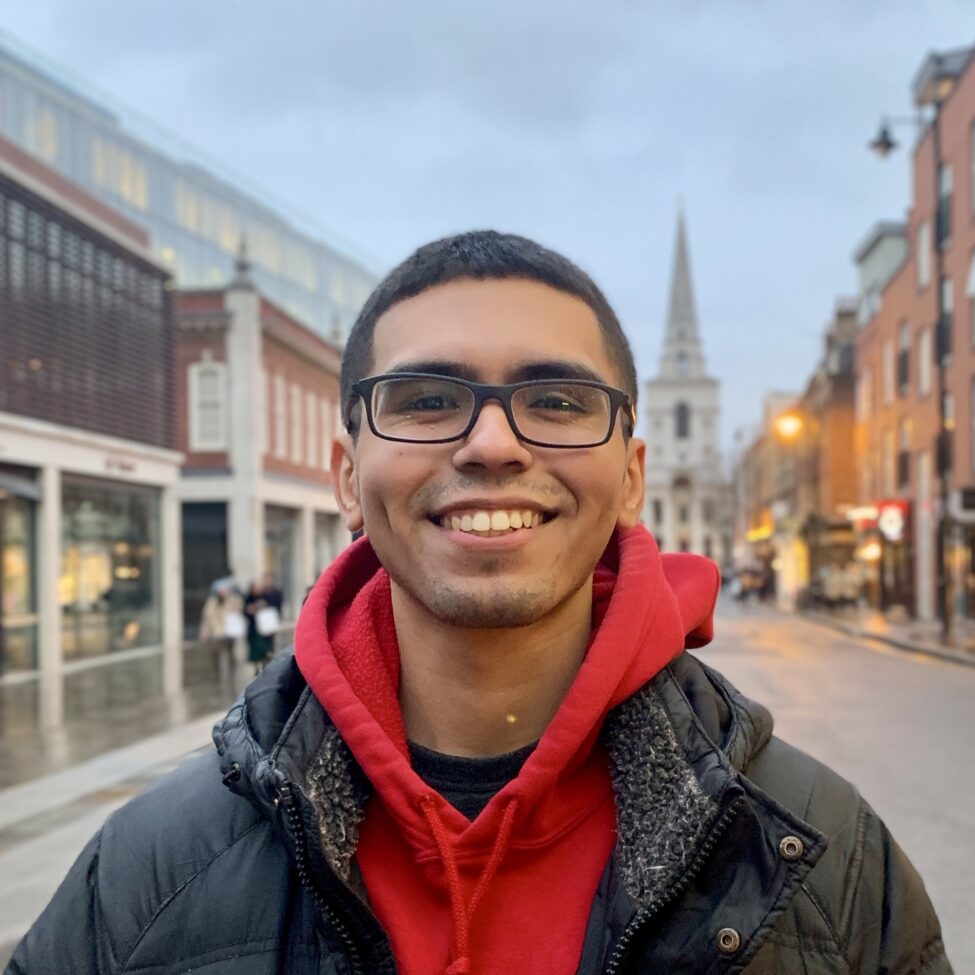
ANTHONY ABEJA (he/him)
Voter Engagement Organizer | Engage Miami
Florida City, Florida
What do you do at Engage Miami?
I am tasked with helping young people in Miami-Dade County and across South Florida prepare for elections. This entails a lot of different things, whether it is helping people to register to vote for the first time, make a plan for voting (for example, if they want to vote by mail), or making sure they have information about the upcoming elections. But, in a sense, it runs a lot deeper than that—especially when you are building relationships with young people and asking them which issues matter to them the most. That way they can start thinking about those issues in the context of voting and civic engagement.
How does your identity and heritage influence your organizing/work?
Organizing is a very fulfilling job and as a first-generation Mexican-American, I was instilled growing up with two values: hard work and education. These two values definitely influence how I do the work I do now. Organizing really takes these two values to another level because no longer is it just about educating myself, but it also means now educating others and learning from others. It means working hard with others so that way we can have and co-create the future and society we want to see.
When speaking directly with young Latinx voters, what do they say are the most important issues to them?
When I talk to other young Latinx people, they definitely want to see a difference in society. Some of the issues they always bring up to me are affordable housing, climate change, community safety (whether it’s gun violence or police and prison reform). These issues are on the minds of young Latinx folks and, slowly but surely, we are starting to get our voices out there.
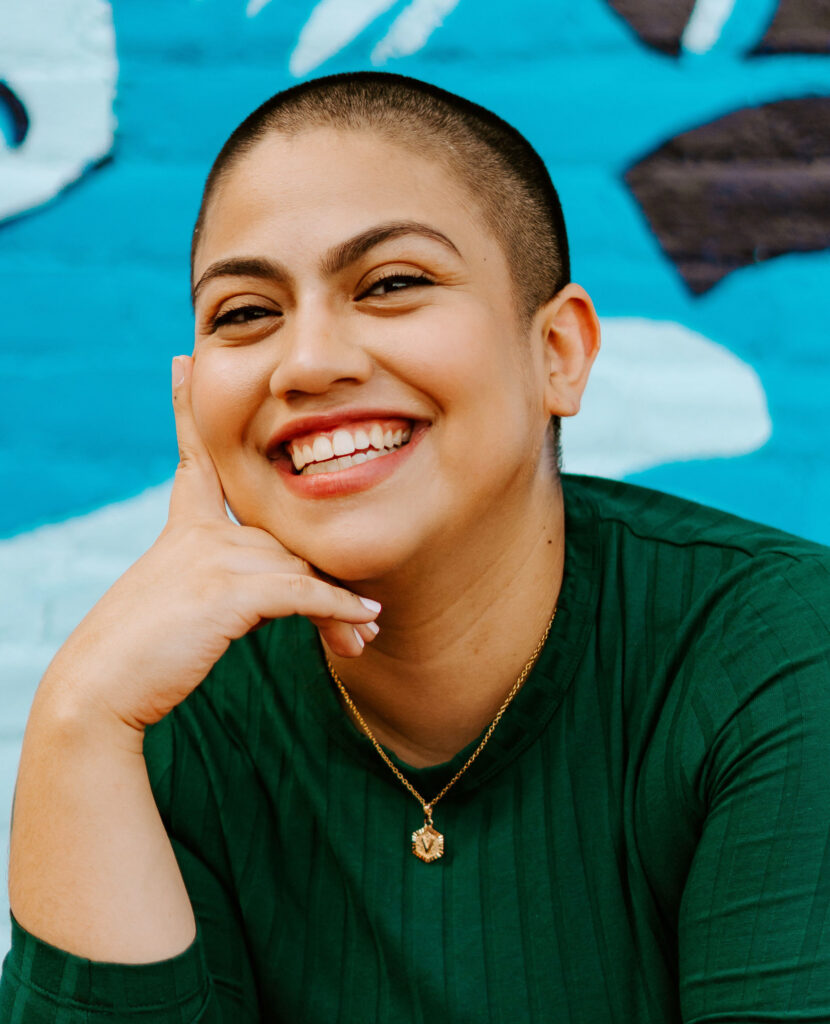
VICTÒRIA SANDOVAL (she/they)
* Victòria identifies as Chicanx
Field Organizer | MOVE Texas
Laredo, Texas
What do you do at MOVE Texas?
I help build political power for underrepresented youth communities at the Texas-Mexico Border.
How does your identity and heritage influence your organizing/work?
My identity is vital to my organizing. Watching my community demonstrate people power as a means of surviving taught me how to organize. My community taught me how to have empathy, how to execute a plan, how to listen with compassion and how to lead our youth. This city created me. All of my wins are evidence of the beauty and compassion that exists at the Texas-Mexico border.
When speaking directly with young Latinx voters, what do they say are the most important issues to them?
When speaking with young Latinx people on the ground, the issues that are top of mind are dealing with climate change. We are raised in beautiful multifaceted communities but the next generation will not enjoy these communities without a government who will take initiatives to solve climate change rapidly.
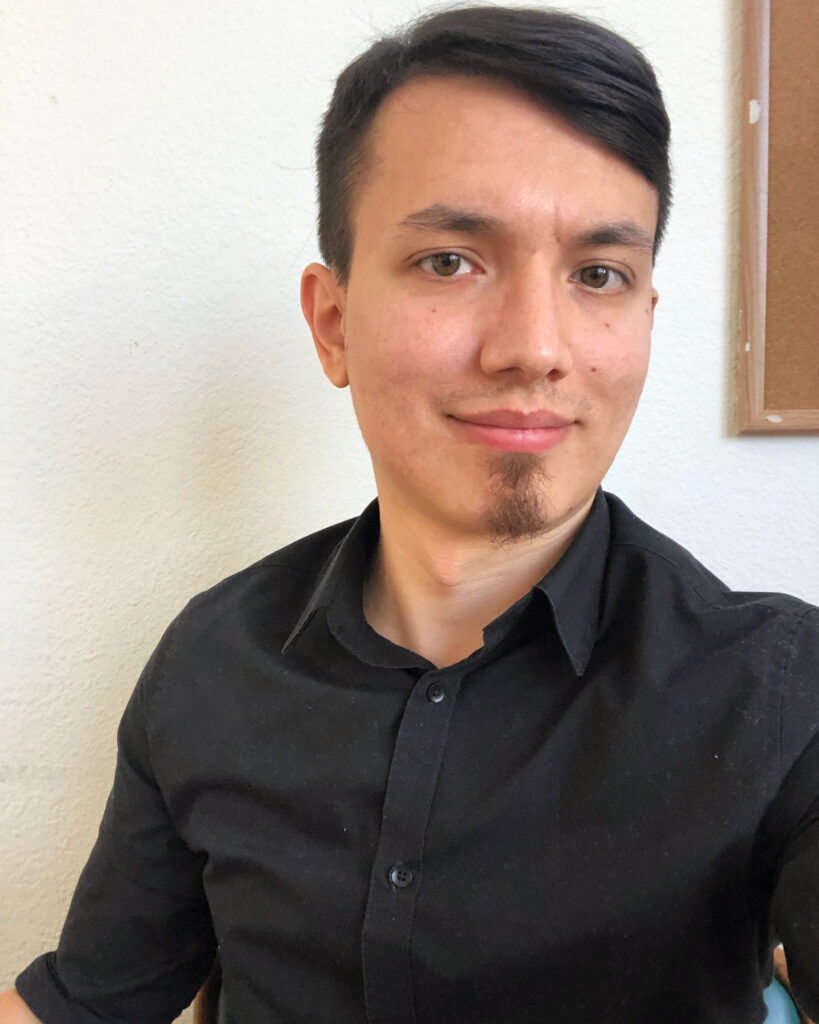
ALÁN M. DE LEÓN (he/him/él)
Houston Advocacy Organizer | MOVE Texas
Houston, Texas
What do you do at MOVE Texas?
At MOVE Texas we do three different types of front-facing work: field, education, and advocacy. My responsibilities are to drive our advocacy efforts in the Houston region. What that looks like on day-to-day is building coalitions, collaborating with other justice-oriented partners (student and youth partners, academic partners, nonprofit partners, community leaders), as well as conducting deep relational organizing in underrepresented communities. This is all towards the goal of building the collective power that is needed in order to successfully advocate for and advance progressive policies that meet the needs of our communities in the region.
How does your identity and heritage influence your organizing/work?
My identity and background play a big role in why I decided to get started in organizing in the first place. I’m the first in my family to be born in the United States. I’m the first in my family to go to college. My life has always been very politicized on questions of immigration and economics. We come from a very humble background. I was always very frustrated, not just with the fact that the Latinx community interests were never prioritized to the extent they needed to but also frustrated, with the lack of civic participation on our own end. Such as not enough people being registered to vote, not enough people voting, not enough people being involved in our political processes. And I saw the ways in which this accosted us. I saw it incumbent upon myself to do whatever I could in my own backyard, Houston, Texas, the city where I was born and raised, to organize, to bring people together, and to try and change the culture of how Latinx communities get involved in politics.
When speaking directly with young Latinx voters, what do they say are the most important issues to them?
As a Latinx person, there has always been this stereotype that the Latinx community is only concerned about immigration which is just not true. There are other issues on the minds of young Latinx voters. For example, I hear that young Latinx voters are concerned about climate change. They know that because of irresponsible environmental policy-making, we have to deal with the biggest impacts of climate change. We need to take action on that front. The second thing is we are concerned about criminal justice reform. We do not want to live in a society where racism continues to exist. So, we want to build a criminal justice system that is based on restoration and not punitiveness. Finally, a lot of Latinx voters are concerned about voting rights. For years, our community has been disenfranchised by voter suppression, whether that is through stringent voter ID laws, the closure of polling sites in our communities, or lack of access to easy means to get registered to vote. All of these issues and more are on the minds of young Latinx voters which drive them to the ballot box this November.
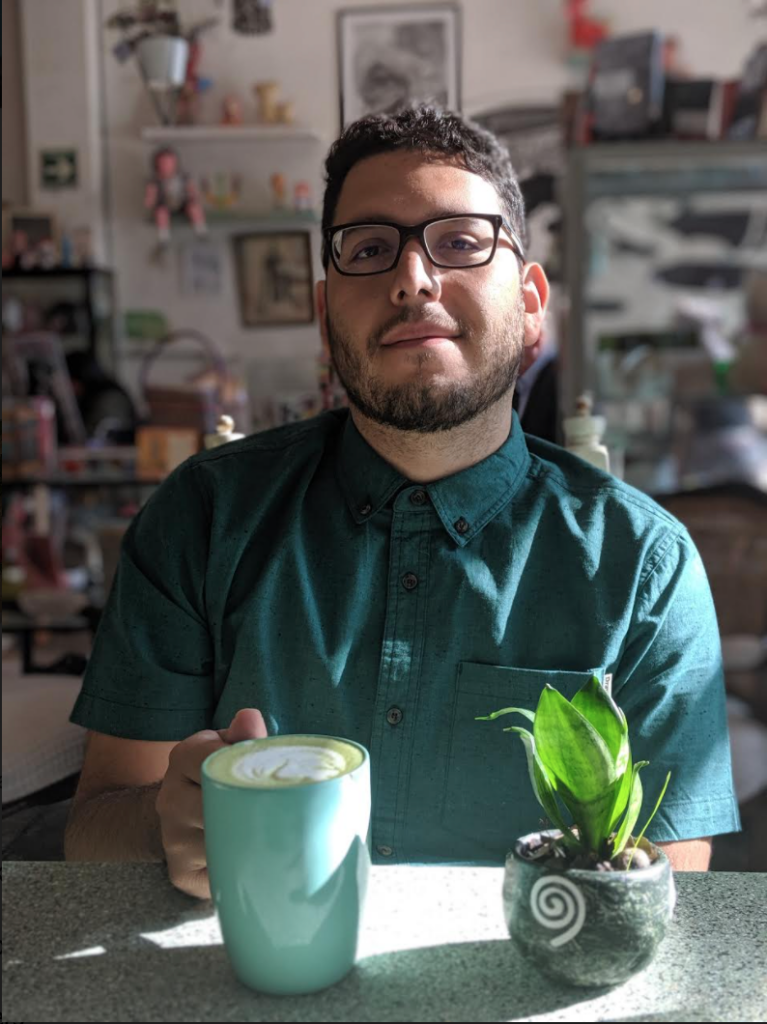
JAVIER ALVARADO VEGA (he/him)
Youth Vote Coordinator | New Era Colorado
Denver/Greeley, Colorado
What do you do at New Era Colorado?
At New Era Colorado, I run a team of six organizers and am in charge of two college campuses, DU and UCCS. We are a nonpartisan voter registration drive so my work revolves around getting the folks in my pod and our overall Denver Team to register folks to vote! We do this both by in person events, phone banks, and virtual voter registration sessions. I have also worked with members of the organization to introduce Spanish language into our Get-Out-the-Vote efforts. To build a youth voter base you cannot leave out anybody from the electoral process.
How does your identity and heritage influence your organizing/work?
I have always seen myself as a supporter instead of a leader. I want to support the folks around me to do better and be better as people. But I will still stand and advocate for folks who ask me to. The voices of the marginalized need to be uplifted. This has led me to get involved within my org to make sure we are serving members of the Latinx community. And even then, make sure the marginalized Latinx voters, those who do not speak Spanish or lack access to a printer, should also get all the information they need to vote.
When speaking directly with young Latinx voters, what do they say are the most important issues to them?
First of all, it is always very encouraging for me to see young Latinx voters excited about voting. Even more when it is their first time, and even more if this is their first time due to recently obtaining their citizenship! Their struggles and efforts should be celebrated. But when it comes to important issues, young Latinx voters are greatly impacted by important issues such as immigration, student debt, police brutality, and economic access. Latinx students are impacted at higher rates in the economy than white students, and even more, if the students are female-presenting, or members of the LGBTQ+ community.
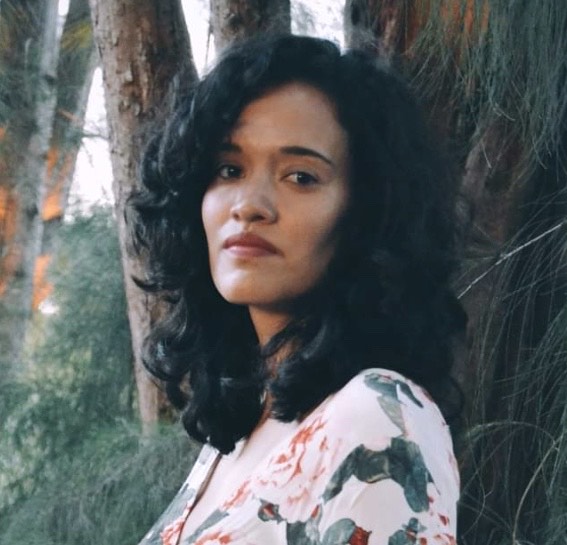
MARIANA OCHOA (she/her)
Communications Manager | Engage Miami
Miami, Florida
What do you do at Engage Miami?
As the Communications Manager, I get to tell the stories of young people here and the issues they care about, as well as get them resources so they can stay civically engaged all year-round.
How does your identity and heritage influence your organizing/work?
As a Latinx person myself, I know that we come from all different types of experiences and backgrounds. Sometimes we speak different languages and we’re all different shades. We are a multi-faceted group.
When speaking directly with young Latinx voters, what do they say are the most important issues to them?
From talking to young Latinx voters here some of the issues that they say that they care about are Democracy Done Right, climate justice, and investing in our communities rather than more police and prisons. These are also issues that we cover in our platform, the YPPP—Young Peoples’ Policy Priorities at Engage Miami.
